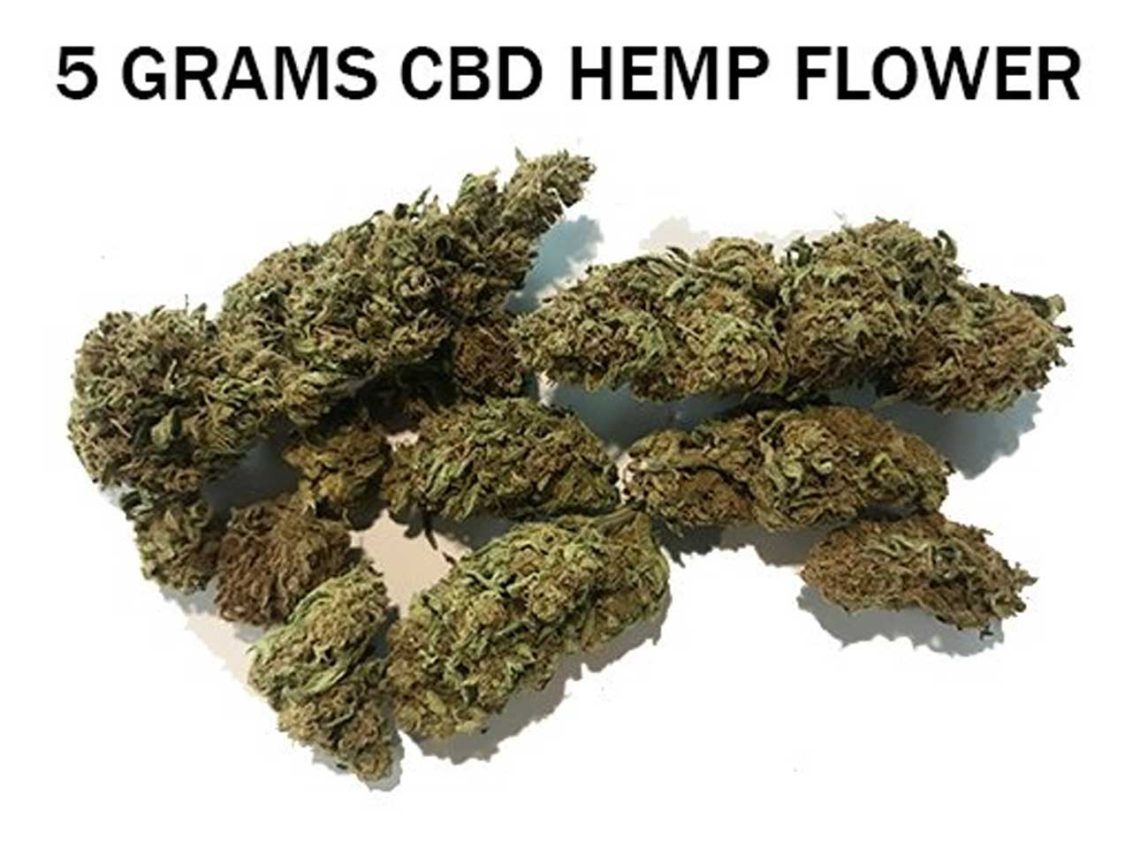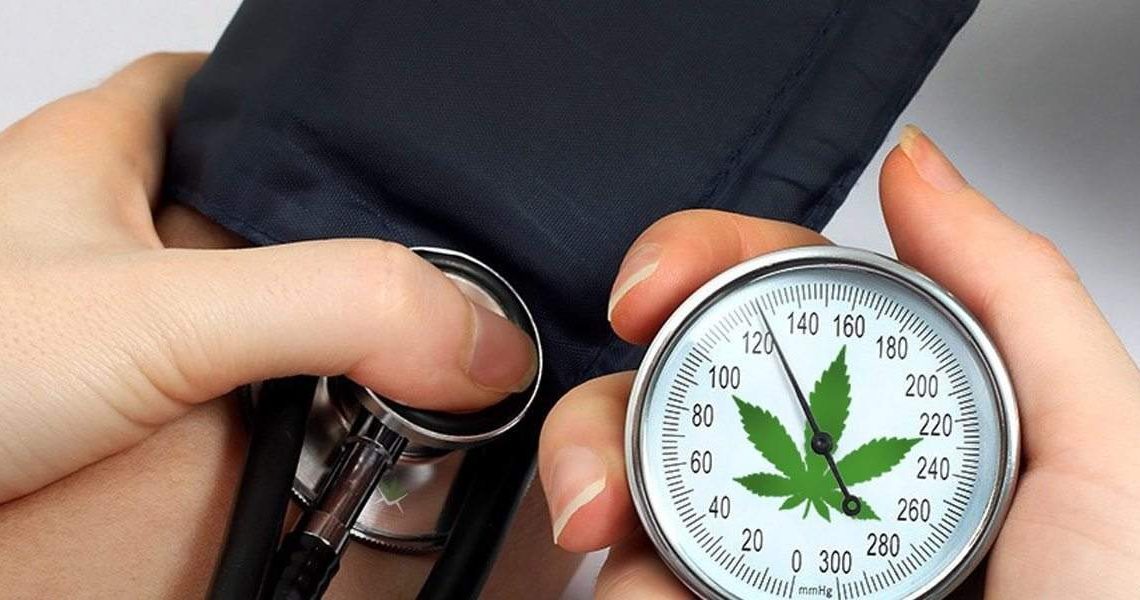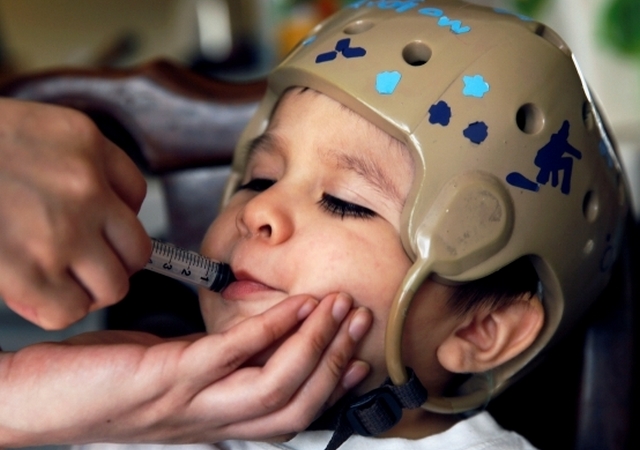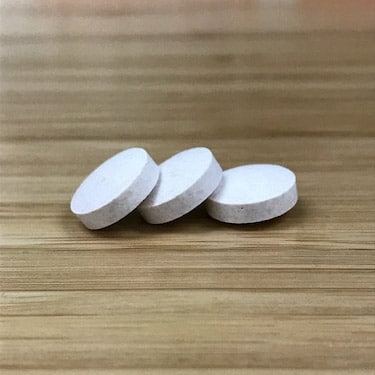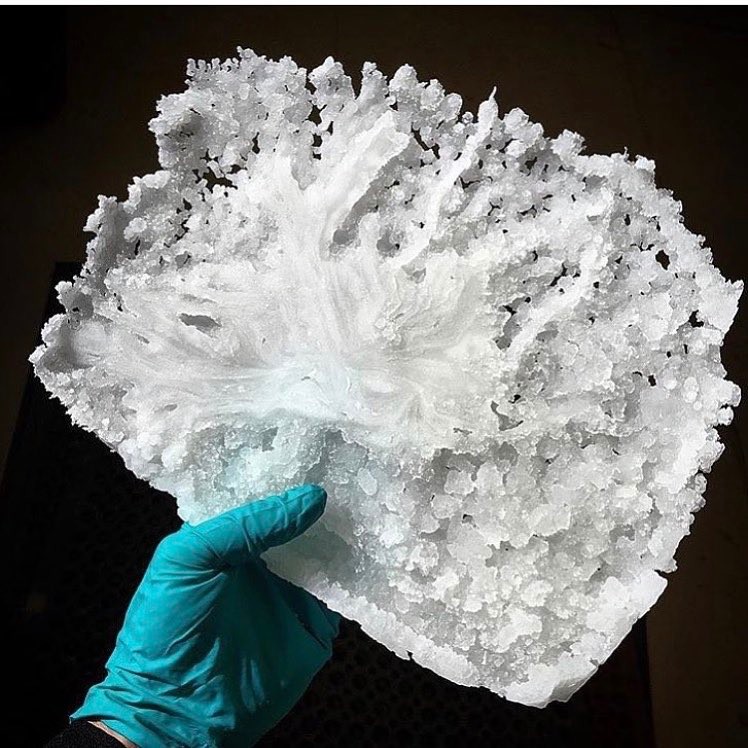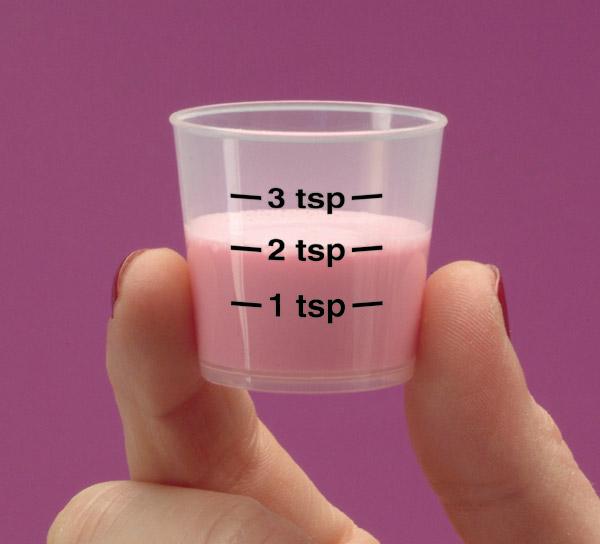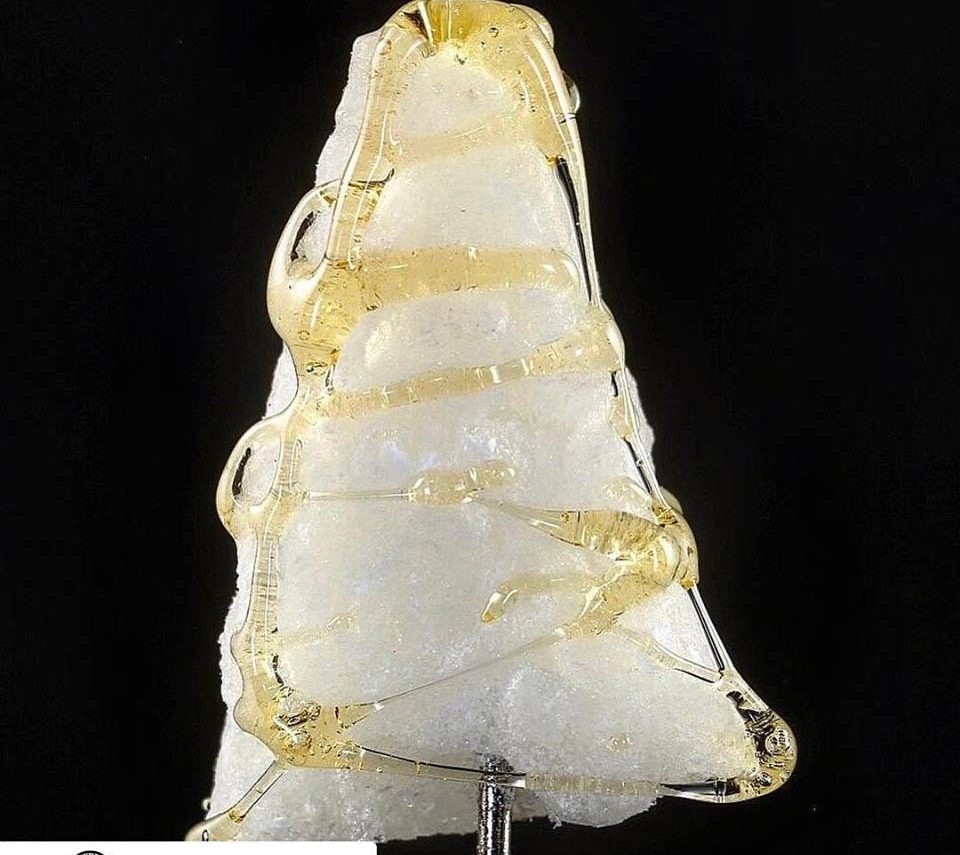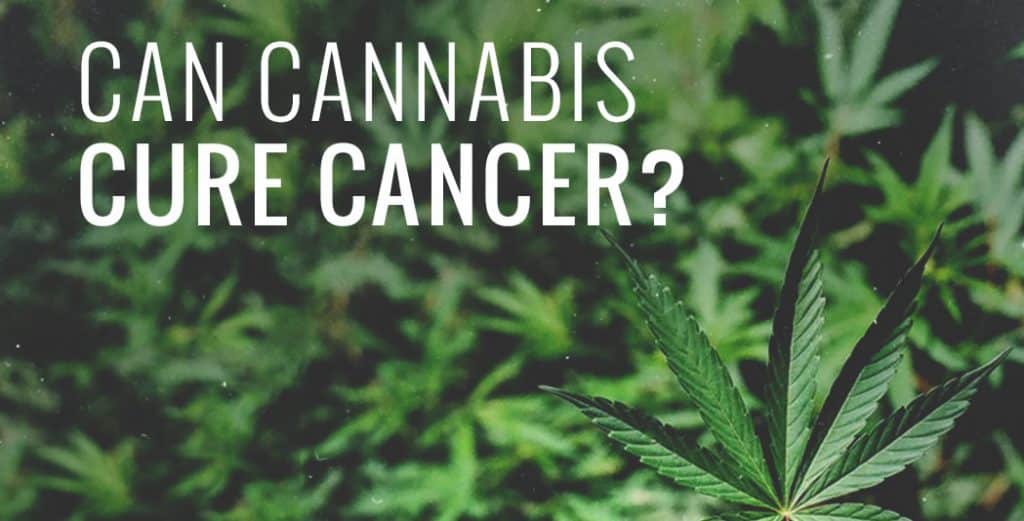Category: Dosage
Beginners Guide to CBD Flower
For some, cannabis flower isn’t some tea. Maybe this is on the grounds that it makes one feel excessively neurotic or on edge. We don’t suggest discounting cannabis flower totally. With the end goal to dodge the tornado of nervousness and suspicion, select CBD-rich flower. CBD-rich flower offers the majority of the useful impacts of high-THC flower without the fit of anxiety initiating impacts. CBD-rich flower can do everything from decrease aftereffects to migraines, notwithstanding for clients with high resistances. CBD flower offers customers a lucid experience with unfathomable advantages.
What is CBD Flower?
CBD flower is cannabis bud that enables individuals to unwind without getting high. Truth be told, in the event that you do get a handle on your high from a high THC item, you can even utilize CBD to convey you down to equilibrium. Today’s indica and sativa strains contain as much as 25 percent THC, significantly higher than mother and father’s schwag from the 60s. Tetrahydrocannabinol (THC) is only one of numerous cannabinoids found in the cannabis plant and CBD additionally makes up a sizable part. Some cannabis cultivators have selected to develop for cannabidiol (CBD) for a helpful and non-psychoactive experience. While CBD flower contains low levels of psychoactive THC, the large amounts of CBD manage the impacts of THC.
The Entourage Effect
While many cannabis consumers may choose to opt for CBD-only products like CBD oil, CBD-rich flower can have better effects because of the synergy that occurs between THC and CBD. When smoking or vaping the entire cannabis flower, you get a wide breadth of therapeutic cannabinoids and fragrant terpenes that work together to influence each other’s actions. CBD, for instance, can enhance THC’s pain relieving and epilepsy reducing properties. CBD also encourages THC to stay longer in the system, helpful for people with chronic conditions.

Medicinal Value of High CBD and Low THC Flower
High CBD and low THC flower can alleviate chronic pain, inflammation, seizures, and anxiety. Specifically, CBD flower can help reduce symptoms associated with multiple sclerosis, fibromyalgia, arthritis pain, Dravet’s Syndrome, and some anxiety disorders. When smoked or vaped, CBD flower can deliver immediate effects for acute symptoms. Since consuming CBD flower requires inhalation, it may not be the best consumption method for people with respiratory problems, children or the elderly.
Determining Dose of CBD Flower
Everyone’s ideal dose of CBD flower is different. Every strain will affect everyone differently. Since strains have differing ratios of CBD to THC, consumers can try out many to determine what works best for them. Some people may be more sensitive to THC than others. They need a CBD flower with a high ratio of CBD to THC for less of a high. Start off by consuming low doses of high CBD cannabis flower. A low dose can be one to two inhalations from joint, vaporizer or water pipe. While it isn’t an exact science, the slower you go, the better you can determine your tolerance for THC and CBD.
Buying cannabis flower solely based on a high THC is (and should be) an outdated approach to cannabis consumption. If you’re buying liquor, do you always opt for white lightning given its high alcohol percentage? Cannabis consumers are growing wise to the unique effects of high-CBD flower, which can enhance the overall experience. CBD-rich flower boasts robust relaxing effects that can benefit users that rely on indica strains for its mellowing effects. Strains including Charlotte’s Web, Sour Tsunami, and AC/DC (to name a few) aren’t psychoactive, but offer a potent pain-relieving, anti-inflammatory, and anxiety-reducing effects due to the high amounts of CBD in the flower.
Tinctures Work better
Tinctures still are the best proven way to get CBD without risking the chances of popping on a drug test for THC. Not only are tinctures safer, no smoke, do not smell, and have less risk for testing positive on a drug test, but they often beat the amount of CBD inside hemp flowers by 25-45% on average. Check out the Vetted list of companies for high CBD tinctures that are safe, and proven effective. All provide lab analysis showing the CBD content and how little THC there is. Its the best risk free option if you are looking for high CBD strains.
CBD and Blood Pressure
When marijuana was first gaining major publicity for its medical benefits, one of the first public proponents was baseball Hall-of-Famer Kirby Puckett, who used it to treat his glaucoma. From there, it was only a matter of time before medical research proved that CBD reduces blood pressure.
In glaucoma, the pressure of fluid within the eyeball increases, putting pressure on the optic nerve. Eventually, the pressure becomes so great that the optic nerve is pinched off and the patient loses his or her sight.
Cannabinoids and Blood Pressure
Until recently, evidence has been (more or less) inconclusive, with findings going both ways. These studies, however, had been investigating cannabis flower with no control for strain, cannabinoid profile, or route of ingestion.
Different cannabinoids have different effects and attenuate the endocannabinoid system in different directions. It’s well known, for example, that THC and CBD have inverse effects to a degree.
Finally, one recent study, which specifically investigated whether CBD reduces blood pressure in human trials, put a rest to the controversy: “Our data show that a single dose of CBD reduces resting blood pressure and the blood pressure response to stress.”
Cannabis and Cardiovascular Disease
These findings build upon previous research that shows CBD is a vasodilator, which means it makes your arteries and blood vessels wider, allowing for greater blood flow with less pressure. There is a growing body of medical research showing that CBD’s neuroprotective effects are beneficial with cardiovascular diseases, especially in recovery from stroke and heart attack.
This study sheds light on one of the stickier areas within medical cannabis research: its effect on the cardiovascular system. Most investigations looking at long-term cannabis smokers find cardiovascular damage and attribute it to cannabis. Because this study utilized ingested CBD, they were able to separate the effects of smoking and the effects of the cannabinoid.
The negative effects, it turned out, were due more to the smoking than the cannabis itself.
How CBD Reduces Blood Pressure
Now, this is still a long way away from CBD being an effective treatment for cardiovascular diseases like hypertension. Serious conditions have many factors at play—lifestyle, diet, genetic, life circumstances, etc.—and taking some CBD oil isn’t necessarily going to make it all better. There are no magic pills to fix these things, despite what your friendly neighborhood pharmaceutical company would like you to believe.
While it may not be a cure for hypertension, cannabis does provide a natural, safe remedy for people to help manage their stress and blood pressure.
According to the abstract from the, “Journal of Clinical Investigation” Cannabidiol (CBD) is a nonpsychoactive phytocannabinoid used in multiple sclerosis and intractable epilepsies. Preclinical studies show CBD has numerous cardiovascular benefits, including a reduced blood pressure (BP) response to stress. The aim of this study was to investigate if CBD reduces BP in humans.
Nine healthy male volunteers were given 600 mg of CBD or placebo in a randomized, placebo-controlled, double-blind, crossover study. Cardiovascular parameters were monitored using a finometer and laser Doppler. The results varied but participants had a decrease of about 6 mm HG.
“Our data show that a single dose of CBD reduces resting blood pressure and the blood pressure response to stress, particularly cold stress, and especially in the post-test periods. This may reflect the anxiolytic and analgesic effects of CBD, as well as any potential direct cardiovascular effects. … Further research is also required to establish whether CBD has any role in the treatment of cardiovascular disorders such as a hypertension.”
Now Epidemiological studies have shown a positive relationship between long-term stress and the development of cardiovascular disease. Factors like social isolation, low socioeconomic status, depression, stressful family and work life, and anxiety are associated with an increased risk of the development and accelerated progression of existing cardiovascular disease. Current European guidelines on the prevention of cardiovascular disease have emphasized the importance of tackling these factors. Mental stress induces myocardial ischaemia in patients with stable coronary artery disease, and this appears to be mediated by adrenal release of catecholamines.
But what exactly is CBD? Cannabidiol (CBD) is one of the most prevalent chemical compounds in the cannabis plant. Unlike the more famous molecule, tetra-hydrocannabinol (THC), CBD is completely nonpsychoactive. Don’t expect to get “high” off of this organic chemical, however. CBD is all relaxation without intoxication.
While CBD still has an effect on your body, consuming CBD by itself isn’t going to send you on the cerebral adventure associated with THC. For decades, medical professionals and the general public overlooked CBD because psychoactive cannabis took center stage.
Now, the medical potential of CBD has taken cannabis to mainstream audiences. Preclinical trials over the past four decades have found that the cannabinoid shows promise as an anti-hypertensive.
CBD has been studied for these Conditions:
- Cigarette smoking addiction
- Acne
- Diabetes
- Fibromyalgia
- PTSD or Post Traumatic Stress Disorder
- Schizophrenia
- Crohn’s Disease
- Multiple Sclerosis
- Insomnia
One of the few side effects of CBD is tiredness, but for many, it’s what they seek out in the natural herb. Since pharmaceuticals for aiding sleep pose risk for addiction and leave you feeling groggy the next day, it’s best to go the safe route with non-habit forming CBD. When searching for strains to combat insomnia, try staying with Indica and CBD-heavy strains to knock you out when you need it most.
Side Effects:
CBD decreased the activity of T and B cells which may increase the disease progression, tumor growth and metastases, and exacerbate asthma.
CBD can decrease the activity of liver enzymes called cytochrome P450, responsible for metabolizing more than 60% of prescribed drugs. CBD may also cause mild hypotension, dry mouth, lightheadedness, and sedation.
The other thing I want you to be mindful of, again, that it can decrease the metabolizing of medications you are currently taking. If you live in a state where it is legal. Please consult with your healthcare practitioner before using this medicine. Now I know what you must be thinking, “I have got to try this!” Yes and I understand why. In many places CBD is still classified as a “Class 1” drug and is considered illegal. Even in places where it is legal, getting a pure CBD medication can be difficult. Places that had advertised CBD, when it was tested had almost no CBD in the oil, but by trusting the vetted companies you know your CBD is great quality.
Originally found here
THESE STATEMENTS HAVE NOT BEEN EVALUATED BY THE FDA AND ARE NOT INTENDED TO DIAGNOSE, TREAT OR CURE ANY DISEASE. ALWAYS CHECK WITH YOUR PHYSICIAN B EFORE STARTING A NEW DIETARY SUPPLEMENT PROGRAM
Shaun Hussain, MD, reviews evidence supporting and opposing the use of cannabidiol and medical marijuana in the treatment of pediatric epilepsy
[yotuwp type=”videos” id=”NQKvHdeNJAc” ]
Basic noobie guide for CBD dosages
CBD Oil Dosage – General Advice to Assess How Much CBD to Take
Even with the wave of states legalizing medical marijuana, many physicians are still reluctant to prescribe cannabinoids because they are not sure what dosages to prescribe. After all, most medical schools never cover CBD Cannabidiol in their pharmacology courses. Medical scientists are just now developing dosing schedules for medical marijuana, medicinal hemp and their extracts, including CBD.
CBD-rich hemp oil comes in various concentrations and forms, including liquid hemp oil, hemp oil as a thick paste, oil in capsules, sublingual tincture drops or sprays, salves for topical use, edibles as in candy or gum and CBD vapor from vaporizers similar to e-cigarettes.
Everyone Is Different
What you will find on this page is meant to be a guideline, a starting point of reference. The fact remains that everyone is in a different place and will react differently to their CBD dosage. As serving size or dosage of CBD differs for each person, it is best to start small and gradually increase until you experience the desired result.
CBD Brands Confusing Dosage
CBD oil brands create a lot of confusion for consumers because they all have different standards. Many of them recommend way too much as a “serving” and others recommend too little. Because of this lack of standard during our review of individual CBD products,
It is also recommended that you try increasing dosage every 3-4 weeks by 25mg until symptom relief. And to decrease amount of CBD with any worsening of symptoms.
CBD Oil Dosing
Concentrations vary between preparations, ranging from 1 mg per dose to hundreds of milligrams. This makes it easy for consumers to get the dosages they need in a form they find easy to use.
CBD Dosages
Mayo Clinic suggests CBD dosages on scientific research, publications, traditional use, or expert opinion. Cannabinoid dosages and duration of treatment depend largely on the disease.
How Much CBD Oil Should I Take?
To increase appetite in cancer patients: 2.5 milligrams of THC by mouth with or without 1 mg of CBD for six weeks
To treat chronic pain: 2.5-20 mg CBD by mouth for an average of 25 days.
To treat epilepsy: 200-300 mg of CBD by mouth daily.
To treat movement problems associated with Huntington’s disease: 10 mg per kilogram of CBD by mouth daily for six weeks.
To treat sleep disorders: 40-160 mg CBD by mouth.
To treat multiple sclerosis symptoms: Cannabis plant extracts containing 2.5-120 milligrams of a THC-CBD combination by mouth daily for 2-15 weeks. A mouth spray might contain 2.7 milligrams of THC and 2.5 milligrams of CBD at doses of 2.5-120 milligram for up to eight weeks. Patients typically use eight sprays within any three hours, with a maximum of 48 sprays in any 24-hour period.
To treat schizophrenia: 40-1,280 mg CBD by mouth daily.
To treat glaucoma: a single CBD dose of 20-40 mg under the tongue. Doses greater than 40 mg may actually increase eye pressure.
According to CannLabs, the nation’s top full-service testing lab for cannabis products, there is no established lethal CBD dose. Consumers should read product inserts carefully to ensure they are taking the right amount of CBD, and talk to the prescribing physician about any questions or concerns.
Still Have Questions? Get info from other users on reddit!
How much CBD for Anxiety?
In 2015, the National Institute of Health allotted $21.2 million of its $111 million cannabinoid research budget towards projects exploring the medicinal potential of these compounds. These projects proposed to manipulate the body’s endocannabinoid system, either by modifying endocannabinoids or with phytocannabinoids from the cannabis plant.
While the primary psychoactive phytocannabinoid, delta 9-THC, has acknowledged medicinal value, cannabidiol (CBD) is widely known for its broad range of potential medicinal uses. In recognition of CBD’s vast potential, over $9 million in grants were awarded in 2015 to fund CBD-specific medicinal research.
Much of this research has centered around the treatment of epilepsy, with studies showing that CBD has significant potential for treating the condition in children at high doses. A daily dose over 600 mg reduced seizure frequency by 39%. While this is a far greater amount than you’d find in many of the CBD consumables available at your local dispensary, many retail CBD products with lower levels of the cannabinoid are reported to be effective at treating anxiety, pain, and a host of other disorders, either through self-experimentation or anecdotal reports.
So why not crank up the CBD dose to reduce your anxiety? If a little is good, shouldn’t a lot be better? It turns out that for CBD, the answer is no; CBD’s medicinal efficacy might require a particular dose range. Call it a “Goldilocks Zone,” where there’s not too much CBD but not too little, either.
Intriguingly, this Goldilocks Zone differs for each disorder. For instance, CBD appears to treat anxiety at relatively low doses compared to the high doses used to treat epilepsy.
While it may sound out of the ordinary, this “inverted-U” effect is actually quite common among drugs that affect multiple brain receptors, as CBD does. In fact, 37% of published toxicology articles report some degree of an inverted-U response, indicating that this is not a random event but instead reflects differential drug effects on brain targets.

The wide spectrum of CBD’s medical indications—it is used as a treatment for pain, anxiety, post-traumatic stress disorder, and other conditions—reflects its diverse set of brain and body targets. Since each of these many medical problems is impacted by CBD acting on specific receptors in the brain and body, differences in sensitivity for these targets may underlie CBD’s inverted U-response and define its Goldilocks Zone.

Renowned cannabinoid pharmacologist Roger Pertwee described CBD actions at low, medium, and high doses in an oft-cited review published in The British Journal of Pharmacology. As expected, low doses of CBD impact fewer neural targets than high doses. At relatively low doses, CBD can block endocannabinoids like anandamide and phytocannabinoids like delta 9-THC from interacting with receptors in the nervous system. This blocking action is thought to explain CBD’s ability to reduce the adverse effects that can accompany delta 9-THC exposure such as anxiety.
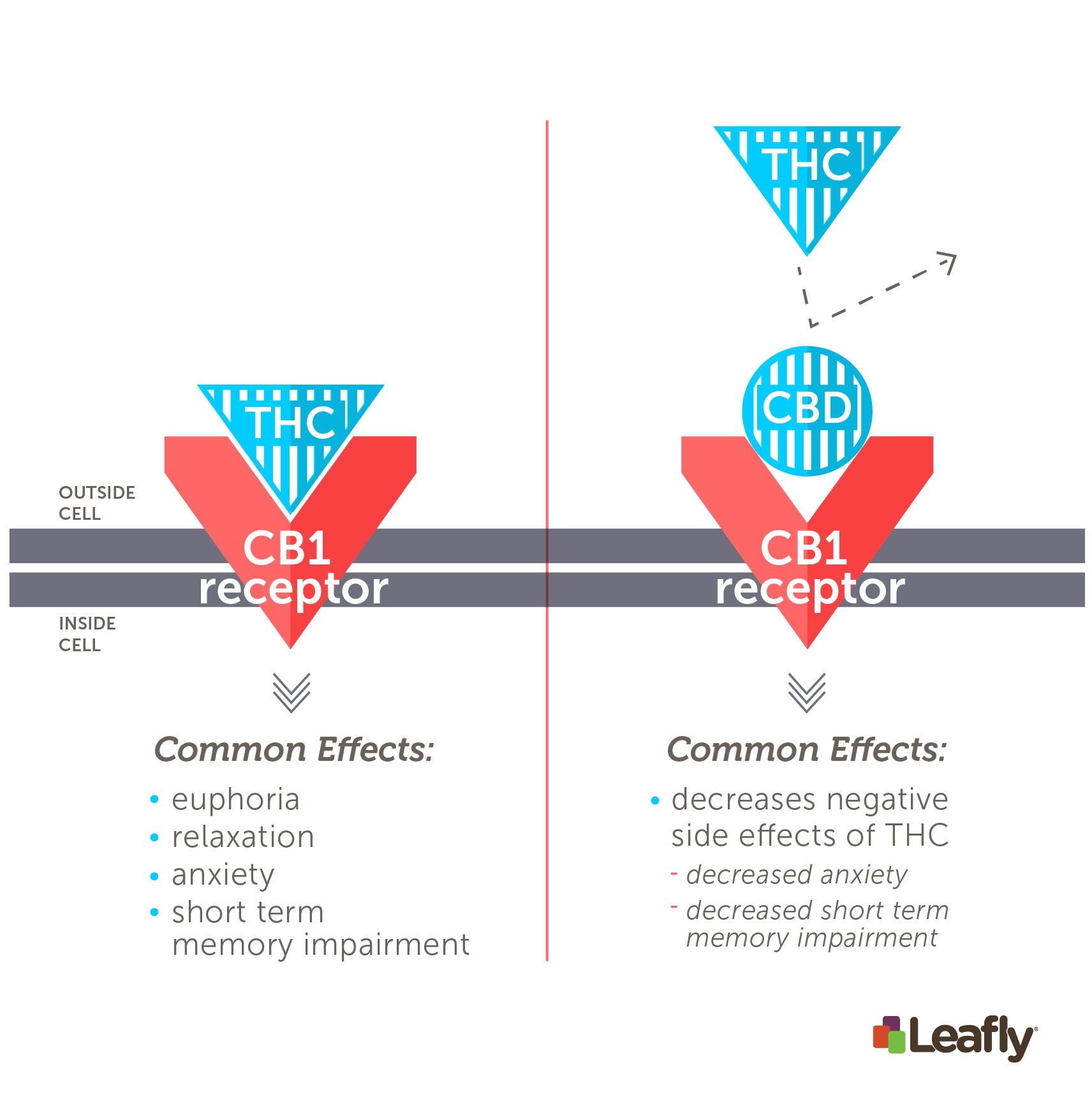
CBD’s anti-anxiety effects can also be attributed to its activation and enhancement of specific serotonin receptors. Serotonin is an important neurotransmitter involved in mood regulation and stress response; low serotonin levels are thought to contribute to conditions including generalized anxiety disorder and major depression. A common pharmacological treatment for these conditions involves enhancing the amount of serotonin available in an effort to activate the receptors using selective serotonin reuptake inhibitors, or SSRIs.
Rodent studies of CBD in anxiety and stress reveal that CBD similarly enhances serotonin receptor activation. In rats, a low-to-moderate dose of CBD has anti-anxiety effects following a stressful period of restraint (the rat equivalent of being placed in a straitjacket for an hour), but these anti-anxiety effects go away when the serotonin receptor 5-HT1a is blocked ahead of time. This suggests that low doses of CBD near the peak of the rodent’s inverted-U response reduce anxiety by activating 5-HT1a receptors.
Similar CBD doses in humans have been shown to be effective at reducing anxiety in individuals with generalized social anxiety disorder, and low to moderate doses are effective at reducing stress and improving performance in a simulated public speaking event. These positive effects are associated with a restoration of normal brain activity in key regions associated with anxiety and emotional dysregulation.
The positive effects of CBD in treating anxiety are experienced at about 25% of the dose used to treat epilepsy. That higher effective dose level reflects additional CBD brain targets beyond those active in treating anxiety.
While CBD activation of 5-HT1a receptors is insufficient to protect against seizures, a promising target for CBD’s antiepileptic effects is the receptor GPR55, which initiates a cascade of events that can have diverse effects in brain cells. CBD is an antagonist of GPR55, blocking its function and altering brain activity in a way that may protect against seizures. When administered in higher doses, though, the benefits of lower concentrations may be lost. Anti-anxiety effects, for instance, seem to be obstructed while higher concentrations of CBD work to block GPR55 receptors.
Identifying CBD’s many neural targets and their sensitivity is an exciting area of ongoing research. But knowing the optimal CBD dose for treating different conditions is a critical component of successful CBD treatment. The current research suggests that anxiety and depression-related disorders (e.g., obsessive compulsive disorder, autism, acute stress) respond best to low-moderate CBD doses, while epilepsy responds best to higher CBD doses.
Being able to titrate CBD dosing for specific disorders will lead to more efficacious CBD-centric therapies and reveal treatment strategies that may be able to combat multiple ailments at once. CBD’s Goldilocks Zone for treating anxiety illustrates the need for an improved understanding of the compound’s therapeutic mechanisms, while highlighting its vast treatment potential.
Basic Introduction to CBD
Everything you need to know about CBD oil
What is CBD oil?
CBD is one of many compounds, known as cannabinoids, that are found in the cannabis plant. Researchers have been looking at the potential therapeutic uses of CBD.
Oils that contain concentrations of CBD are known as CBD oils. The concentration and uses of different oils vary.
Is CBD marijuana?

Until recently, the most well-known compound in cannabis was delta-9 tetrahydrocannabinol (THC). This is the most active ingredient in marijuana.
Marijuana contains both THC and CBD, but the compounds have different effects.
THC is well-known for the mind-altering “high” it produces when broken down by heat and introduced into the body, such as when smoking the plant or cooking it into foods.
Unlike THC, CBD is not psychoactive. This means that it does not change the state of mind of the person who uses it. However, it does appear to produce significant changes in the body and has been found to have medical benefits.
Most of the CBD used medicinally is found in the least processed form of the cannabis plant, known as hemp.
Hemp and marijuana come from the same plant, cannabis sativa, but they are very different.
Over the years, marijuana farmers have selectively bred their plants to be very high in THC and other compounds that interested them, either for a smell or an effect they had on the plant’s flowers.
On the other hand, hemp farmers have not tended to modify the plant. It is these hemp plants that are used to create CBD oil.
How CBD works
All cannabinoids, including CBD, attach themselves to certain receptors in the body to produce their effects.
The human body produces certain cannabinoids on its own. It has two receptors for cannabinoids, called CB1 receptors and CB2 receptors.
CB1 receptors are found all around the body, but many of them are in the brain.
The CB1 receptors in the brain deal with coordination and movement, pain, emotions and mood, thinking, appetite, and memories, among others. THC attaches to these receptors.
CB2 receptors are more common in the immune system. They affect inflammation and pain.
It used to be thought that CBD acts on these CB2 receptors, but it appears now that CBD does not act on either receptor directly. Instead, it seems to influence the body to use more of its own cannabinoids.
Benefits
Because of the way that CBD acts in the body, it has many potential benefits.
Natural pain relief or anti-inflammatory properties
People commonly use prescription or over-the-counter drugs to relieve pain and stiffness, including chronic pain.
Some people feel that CBD offers a more natural way to lower pain. A study published in the Journal of Experimental Medicine found that CBD significantly reduced chronic inflammation and pain in some mice and rats.
The researchers suggest that the non-psychoactive compounds in marijuana, such as CBD, could be a new treatment for chronic pain.
Quitting smoking and drug withdrawals
There is some promising evidence that CBD use may help people to quit smoking. A pilot study posted to Addictive Behaviors found that smokers who used an inhaler containing the compound CBD smoked fewer cigarettes but did not have any additional craving for nicotine.
Another similar study posted to Neurotherapeutics found that CBD may be a promising substance for people who abuse opioids.
Researchers noted that some symptoms experienced by patients with substance use disorders might be reduced by CBD. These include anxiety, mood symptoms, pain, and insomnia.
These are early findings, but they suggest that CBD may be used to avoid or reduce withdrawal symptoms.
Epilepsy and other mental health disorders
CBD is also being studied for its possible role in treating epilepsy and neuropsychiatric disorders.
A review posted to Epilepsia noted that CBD has anti-seizure properties and a low risk of side effects for people with epilepsy.
Studies into CBD’s effect on neurological disorders suggest that it may help to treat many of the disorders that are linked to epilepsy, such as neurodegeneration, neuronal injury, and psychiatric diseases.
Another study published in Current Pharmaceutical Design found that CBD may have similar effects to certain antipsychotic drugs and that it may be safe and effective in treating patients with schizophrenia.
More research is needed to understand how this works, however.
Helps fight cancer
CBD has been studied for its use as an anti-cancer agent.
A review posted to the British Journal of Clinical Pharmacology notes that CBD appears to block cancer cells from spreading around the body and invading an area entirely.
The review indicates that this compound tends to suppress the growth of cancer cells and promote the death of these cells.
Researchers note that CBD may help in cancer treatment because of its low toxicity levels. They call for it to be studied along with standard treatments, to check for synergistic effects.
Anxiety disorders
Patients with chronic anxiety are often advised to avoid cannabis, as THC can trigger or amplify anxiety and paranoia in some people.
However, a review from Neurotherapeutics suggests that CBD may help to reduce the anxiety felt by people with certain anxiety disorders.
The researchers point to studies showing that CBD may reduce anxiety behaviors in disorders such as:
- post-traumatic stress disorder
- general anxiety disorder
- panic disorder
- social anxiety disorder
- obsessive-compulsive disorder
The review notes that current medications for these disorders can lead to additional symptoms and side effects and that people may stop taking the drugs because of these unwanted effects.
CBD has not shown any adverse effects in these cases to date, and the researchers call for CBD to be studied as a potential treatment method.
Type 1 diabetes
Type 1 diabetes is caused by inflammation when the immune system attacks cells in the pancreas.
Recent research posted to Clinical Hemorheology and Microcirculation found that CBD may ease the inflammation in the pancreas in type 1 diabetes. This may be the first step in finding a CBD-based treatment for type 1 diabetes.
Acne
Acne treatment is another promising use for CBD. The condition is caused, in part, by inflammation and overworked sebaceous glands in the body.
A recent study posted to the Journal of Clinical Investigation found that CBD helps to lower the production of sebum that leads to acne, partly because of its anti-inflammatory effect on the body.
CBD could be a future treatment for acne vulgaris, the most common form of acne.
Alzheimer’s disease
Initial research published in the Journal of Alzheimer’s Disease found that CBD was able to prevent the development of social recognition deficit in subjects.
This means that CBD could potentially prevent people in the early stages of Alzheimer’s from losing their ability to recognize the faces of people that they know. This is the first evidence that CBD has potential to prevent Alzheimer’s disease symptoms.
Legality
Cannabis is legal for either medicinal or recreational use in some but not all states. Other states approve CBD oil as a hemp product without approving the general use of medical marijuana.
Laws may differ between federal and state level, and current marijuana and CBD legislation in the United States can be confusing, even in states where marijuana is legal.
There is an ever-changing number of states that do not necessarily consider marijuana to be legal but have laws directly related to CBD oil. This information is up to date as of July 24, 2017, but the laws frequently change.
The laws vary, but they generally approve CBD oil as legal for treating a range of epileptic conditions at various concentrations. A full list of states that have CBD-specific laws is available here.
Different states also require different levels of prescription to possess and use CBD oil. In Missouri, for example, a person must show that three other treatment options have been unsuccessful in treating epilepsy.
If you are considering CBD oil as a treatment for a suitable condition, talk to your local healthcare provider. They will have an understanding of safe CBD sources and local laws surrounding usage. Research the laws for your own state. In most cases, a prescription will be required.
Side effects
Many small-scale studies have looked into the safety of CBD in adults and found that it is well tolerated across a wide range of doses.
There have been no significant side effects in the central nervous system or effects on vital signs and mood among people who use it either slightly or heavily.
The most common side effect noted is tiredness. Some people have noticed diarrhea and changes in appetite or weight.
Risks
There are still very little long-term safety data available, and, to date, tests have not been carried out on children.
As with any new or alternative treatment option, a patient should discuss CBD with a qualified healthcare practitioner before use.
The United States Food and Drug Administration (FDA) has not approved CBD for the treatment of any condition. It can be difficult to know whether a product contains a safe or effective level of CBD or whether the product has the properties and contents stated on its packaging and marketing.
How to use
CBD oil is used in different ways to relieve the symptoms of different conditions.
Some CBD oil products can be mixed into different foods or drinks, taken from a pipette or dropper, or are available as a thick paste to be massaged into the skin. CBD can also be purchased in capsule form.
Other products are provided as sprays that are meant to be administered under the tongue.
Here are a few recommended dosages, although these may vary between individuals based on other factors, such as body weight, the concentration of the product, and the condition being treated.
Due to the lack of FDA regulation for CBD products, seek advice from a medical professional before settling on any particular dosage.
All dosages relate to taking CBD oil by mouth. These can include:
- Chronic pain: Take between 2.5 and 20 milligrams (mg) by mouth for no more than 25 days.
- Epilepsy: Consume between 200 and 300 mg of CBD by mouth daily for up to 4.5 months.
- Movement problems associated with Huntington’s disease: Taking 10 mg every day for six weeks can help ease movements.
- Sleep disorders: Take between 40 and 160 mg.
- Schizophrenia: Consume between 40 and 1,280 mg CBD by mouth daily for up to 4 weeks.
- Glaucoma: One dose of between 20 and 40 mg applied under the tongue can help to relieve pressure in the eye. However, caution is advised – doses greater than 40 mg might actually increase pressure.
As regulation in the U.S. increases, more exact doses and prescriptions will start to emerge.
After discussing dosage and risks with a doctor, and researching regional legal use, it is important to compare different brands. There are a range of different CBD oils available to purchase online, with different benefits and applications.
Story originally found
Ultimate Guide To figuring out your CBD dosage
Whether you’re a first-time user or an experienced user, understanding how CBD works and how to use it can be somewhat confusing, especially since the industry is so new. Every day, we answer dozens of questions from our readers, but one of the most frequently asked by first-time users and experienced users alike is: What’s the best CBD dosage?

While there are tons of articles about the benefits of CBD, there are few about properly dosing CBD. To make things more confusing, unlike with other supplements, The FDA has not created a Recommended Daily Intake (RDI) for CBD, which means CBD does not have an official serving size.
Because of this, consumers are blindly estimating their dosages based on recommendations from brands and companies they buy their CBD from. Or even worse… friends who are uncertified and claim to be “experts” simply because they use CBD.
“Take one dropper of CBD per day,” is one of the most common dosage recommendations we hear. While this can definitely be a dosage, there’s no way to tell if its the right dosage for the given individual as it doesn’t take into account important factors such as:
- The concentration of CBD
- The weight of the individual
- The individual’s body chemistry
- The severity of the condition being treated
With that being said, there isn’t a “one size fits all” dosage, and there will be some trial and error while gauging your proper dosage.
Neuroscientist Nick Jikomes over at Leafly, explains that, as our body’s physiology changes, so do the receptors in our endocannabinoid system, which are directly responsible for interactions with CBD. As a result, optimal CBD dosages will shift throughout an individuals lifetime.
In other words, there isn’t a universal or static CBD dosage…
So how much CBD should you take then? Use these 3 simple tips to find out:
How to Choose Your CBD Dosage
1. Estimate your dosage based on your body weight
As with most substances, individuals with more body mass will require more CBD to experience its effects. With that being said, a good rule of thumb to determine your proper CBD dosage is to take 1-6MG of CBD for every 10 pounds of body weight based on the individuals level of pain.
For example, 20MG-33MG would be a great starting dosage for a 200lb patient, while 15MG-25MG would be best for another who weighs 150lbs.

For reference, use Honest Marijuana’s Simple Dosage Calculator.
2. Start small and increase gradually
Let’s say you have a friend who weighs no more than 150 pounds and takes 50MG of CBD twice per day, which he claims provides all kinds of benefits. Since you guys are approximately the same weight, he recommends the same dosage for yourself.
Here’s why this isn’t the best way to choose your dosage:
Not only are we all made differently, we each have our own unique history with the use of substances, medications, supplements, and other things we put in our body. Because of this, we all have different body chemistry, and this will affect how our body reacts to CBD. As R.R Noall over at Herb puts it, “what works for your friend, may not work for you.”
With that being said, it is important to first determine your initial dosage based on your weight, gauge how your body reacted to that amount of CBD, then increase gradually while continuing to monitor your body’s reactions till you find the perfect dosage that works for your situation.
3. Consult your physician
When in doubt, consult your physician, especially if you have an existing medical condition. While there aren’t a ton of doctors who have experience with CBD, most doctors should have a good idea on how your body will react to CBD and can provide you a professional CBD dosage for your situation.
You’re Now a CBD Dosage Expert…almost…
So, now that you know how much CBD you should take, we face another important question:
How do you accurately measure your CBD dosage?
Think about it:
How much CBD is there in a single puff off your vaporizer, how much CBD is in a dropper from your CBD tincture?
Without understanding how to properly measure your dosage, knowing how much CBD you should take is pretty much pointless. Especially when it comes to all the different ways to consume CBD.
If you’re feeling a little confused, don’t worry.
Let’s shed some light on the situation.
How to Measure Your CBD Tincture Dosage

Using a CBD tincture is one of the easiest ways to consume CBD. Simply fill the dropper, administer the oil under your tongue, then hold it there for 30 to 90 seconds before swallowing.
But, how many drops of CBD oil should you take?
With some simple mathematics, we can easily figure that out.
Being that the dropper is the tool we use to administer a CBD tincture, we need to find out how much CBD is in a single dropper. Once you know this, you can gauge how much CBD you’re taking.
So how do you figure out how much CBD is in a dropper?
Typically a dropper holds 1 ML of liquid. If you know how many milliliters are in a CBD tincture, you can use this simple formula to determine how much CBD is in its dropper:
[Total CBD in Bottle] ÷ [Number of Millileters in Bottle] = MGs of CBD in a Dropper
For example, let’s say you have a 30ml CBD tincture that has 1500MG of CBD:
1500 ÷ 30 = 50MG of CBD per dropper
Now, if you’re proper dosage of CBD is 25MG, and a single dropper of that 1500MG tincture contains 50MG, you’d simply fill the dropper halfway.
Of course, this method isn’t 100% accurate, but it is more accurate than not measuring at all. Remember, start with a small dosage and gradually increase until you find your perfect dosage.
How to Measure Your CBD Vape Dosage

Vaping CBD can be done using a CBD e-liquid or CBD cartridge system. Both methods are fairly easy and offer an enjoyable experience.
When using an e-liquid to vape CBD, you’d start by estimating how much CBD is in a dropper (just like with a tincture). Once you know this, you know how much CBD you are putting into a single tank. As you vape throughout the day, keep an eye on when you need to refill your tank, and how many times you need to refill your tank.
If your proper dosage of CBD is 25MG, and you are using a 1000MG bottle of CBD e-liquid, a single tank would contain approximately 33.33MG of CBD. That being said, to properly administer your dosage, you would vape a single tank periodically throughout the day.
Again, not 100% accurate; but with regular monitoring, you will be able to quickly gauge your CBD intake.
The Truly Accurate Way to Dose CBD

Since the methods we mentioned so far have only been semi-accurate, you’re probably wondering:
“So is there a 100% accurate way to take CBD?”
There certainly is. CBD Capsules.
Because CBD capsules are filled with an exact amount of CBD, they provide a truly accurate way to dose CBD. If your optimal CBD dosage is 16MG-25MG, then simply buy a bottle of 20MG or 25MG capsules and you’re good to go. Plus, it doesn’t get easier than taking a capsule.
Other consumption methods that are just as accurate include CBD applicators, CBD edibles, CBD Gummies, and CBD beverages; although they may not be as convenient as capsules.
We hope that our CBD dosage guide was helpful. If you have any questions or comments, please feel free to engage in the comments section below.
Story originally found here
Anxiety Dosage Discussion
Anxiety Dosage for CBD from many users
A lot of users are curious when it comes to finding the right dosages for treating anxiety. While we don’t know the answers (because its highly dependent upon you!) we do know that users can share and help you answer your questions! So below is the official anxiety dosage thread!
Feel free to leave a comment on reddit!
[maxbutton id=”7″ text=”See the Dosage for Anxiety” url=”https://www.reddit.com/r/CBD/comments/72xc4b/official_anxiety_dosing_thread/”]
CBD dosages for Crohn’s / UC / Digestive
Digestive Dosage for CBD from many users
A lot of users are curious when it comes to finding the right dosages for treating digestive problems. While we don’t know the answers (because its highly dependent upon you!) we do know that users can share and help you answer your questions! So below is the official Official Crohn’s / UC / Digestive Dosing Thread dosage thread!
Feel free to leave a comment on reddit!
[maxbutton id=”7″ text=”See the Dosage for Digestive problems” url=”https://www.reddit.com/r/CBD/comments/731g07/official_crohns_uc_digestive_dosing_thread/”]
CBD dosages for Cancer
Cancer Dosage for CBD from many users
A lot of users are curious when it comes to finding the right dosages for treating cancer. While we don’t know the answers (because its highly dependent upon you!) we do know that users can share and help you answer your questions! So below is the official cancer dosage thread!
Feel free to leave a comment on reddit!
[maxbutton id=”7″ text=”See the Dosage for Cancer” url=”https://www.reddit.com/r/CBD/comments/73cgqi/official_cancer_dosing_thread/”]
[reddiComments link=”https://www.reddit.com/r/CBD/comments/73cgqi/official_cancer_dosing_thread/”]

